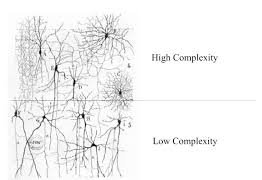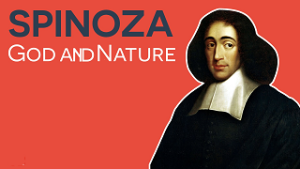
Arquivo para March, 2017
De-globalization and the analysis of the conjuncture
The term is not new no, “de-globalization” derived from very profound, though little-discussed, changes in developed countries where trade as part of economic activity and between periods from 1914 to 1970, the decline that made these economies less integrated with The rest of the world, deepened economic globalization.
little-discussed, changes in developed countries where trade as part of economic activity and between periods from 1914 to 1970, the decline that made these economies less integrated with The rest of the world, deepened economic globalization.
So the current process despite economic globalization has become confused, with an apparent return to the “wealth of nations” (reference to the period of Adam Smith), what is hidden is that clear break for globalization with the Great Recession of 2009 , As the KOF Swiss Economic Institute states: “The bursting of the dot-com bubble and the events of September 11, 2001 simply slowed down the pace of globalization, but the latest economic and financial crisis created a severe setback for the globalization process.”
The same institute in 2013 suggested in another report: “The largest upward movement as a region occurred in South Asia. Latin America and sub-Saharan Africa recorded a very small decrease in their regional average: high-income countries, Particularly the OECD countries, continue their trend of stagnation that began even before the current crisis. “
It is not a single or fatalistic analysis, it only explains why more conservative people find their way into a more conservative discourse, the reasons are economic rather than “cultural” or “political”, employment and money “Are disappearing from the pocket of” developed “countries.
For this reason, it is necessary to think of a culture of planetary solidarity and solidarity as an exit point, but without “forgetting” the local problems.
KOF. «Press release March 1, 2013» (PDF)
And now, is solid government at right ?
The discussion was made without reference to history, and without conscience history does not repeat itself, but it is good to look at the work on the renaissance and the difficulties of establishing “strong” and “centralized” governments seeking to provide political stability, wrote Norbert Elias Scholar of Machiavelli, who is of the period of the renaissance:
does not repeat itself, but it is good to look at the work on the renaissance and the difficulties of establishing “strong” and “centralized” governments seeking to provide political stability, wrote Norbert Elias Scholar of Machiavelli, who is of the period of the renaissance:
“Society was in transition. The same was true of manners. Even in tone, in the way we see it, we feel that, in spite of all its attachment to the Middle Ages, something new was on the way. The “simplicity” as we experienced it, the simple opposition between “good” and “bad” and between “compassionate” and “cruel” had been lost. People embodied things more differently, that is, with stronger control of their emotions (ELIAS, 1994, 83-84).
At the end of the Middle Ages (around the fifteenth century), economic changes began to emerge, structural ones: industrial revolution, liberalism and republicanism, etc. Were still in their infancy, but the economic base is already starting to show signs of change.
Monetary economics, tied to the reappearance of money, which almost disappeared during the period of feudalism (the High Middle Ages), and mercantilism, the period of great navigations and new trades, changed the winds of that time.
It is in this context that the Feudal State gives way to centralized monarchies, and so-called Sovereign by Hobbes or The Prince, by Machiavelli, will make the transformations in the idea of state strengthen throughout the Modern Age.
To deal with such a subject, without a brief analysis of the model of the Feudal State, which underwent profound transformations in the period called the Middle Ages (XI to XV centuries), it is in this context that apocalyptic defenders of the modern State today are unaware of the process of Change we are and advocate the state strengthening “strong” government.
They did not count on the rise to power, at least its announcement in traditionally open countries like the Netherlands, France and even Germany, in addition to the already “consolidated” Trump and Putin governments, in two very strengthened nations.
If this was valid in the time of Adam Smith’s “Riches of the Nations,” today is an outdated and a-historic defense of this strong states defense and does not collaborate with a vision of a world more tolerant, fraternal and respectful of differences Cultural activities.
Adam Smith wrote at this time, Marx himself studied it, and he writed: “In these troubled times, every great owner was a kind of prince on a small point. His tenants were his subjects. He was the Judge and, in chief, in times of war. He waged war at will, and often against his neighbors, and sometimes against his sovereign.” (Smith, 1999, 660).
Today it does not make sense, but the Baumanians and other defenders of the “solid” go out of their way to see “strong” national governments come to the fore, was that what they defended? I bet not, but “strong” government is authoritarian government, contrary to what the world asks, at least any part of society.
ELIAS, N. The Civilizing Process. Oxford: Blackwell, 1994.
SMITH, A. Theory of moral sentiments, São Paulo: Metalibri, 2006. (pdf)
Nature of nature
We have already had occasion to speak of Edgar Morin’s method, in essence its complexity, but we want to penetrate the core of what his thinking confronts with modernity: what we call nature.
but we want to penetrate the core of what his thinking confronts with modernity: what we call nature.
We have already called nature the domain of man over it, anthropocentrism judges that the next man is nature, although part of it, the question is what nature is.
In Method I: Nature’s Nature, Morin states: “The inclusion of antagonism at the heart of complex unity is undoubtedly the most serious attempt against the paradigm of simplicity, the most evident call for the elaboration of a principle and a method of Complexity “(Morin 1997, page 140).
The problem of unity is that antagonism can not be eliminated, so simplicity is dumb, as Morin develops: “there is no organization that does not determine, at least on a virtual basis, internal antagonisms; The more complex organizations behave antagonistic games even in their principle and activity “(ibid., P.140).
Phenomenology begins, as it affirms that things are only things, what it affirms in the meantime is: “it is henceforth impossible to close the wealth of systems in simple and closed notions”, contradicting the simplism and reductionism of modernity.
The complexity states it (in italics in the original): “therefore arises in the bosom of the one at the same time as: relativity, relationality, diversity, alterity, ambiguity, uncertainty, antagonism, and the union of these notions that are… Complementary, competing and antagonistic “(Morin 1997, page 141).
And it uncovers the mystery of our notion of nature: “objects and concepts lose their Aristotelian and Cartesian virtues: substantiality, clarity, distinction … But these virtues were vices of simplification and denaturation” (Morin 1997: 141).
So what nature is, we must read the whole book and its complexity, and it is not evasive, but I leave a tip from the top of the book: “The noological sphere, constituted by the set of phenomena said spiritual, is a very rich universe that Ideologies can remain in latency or deviation, in a small minority isolation … but suddenly, the rupture of a negative feedback, or any other favorable event, allows its epidemic multiplication “( Morin, 1997, page 310).
It is not a conclusion, just a score from this post: “The imaginary is at the active and organizational heart of social and political reality” (Morin 1997, page 311).
Then develop the information universe, which interests us thematically.
MORIN, E. O Metodo: I-A natureza da natureza, Lisboa: Publicações Euro-américa, 1997. (Download em english)
The Nature in Spinoza
Baruch de Spinoza (or Espinosa as some want) (1632-1677) was a Dutch philosopher of  Portuguese descent (not Portuguese as others want).
Portuguese descent (not Portuguese as others want).
He said that everything is governed by a necessity of absolute logic, that nothing happens by chance in the physical world, so everything that happens is a manifestation of the immutable nature of God, therefore it is God’s will, despite being excommunicated by Jews and Christians .
But the main reason for his excommunication was a kind of pantheism, although today more and more the church and many people are reviewing the “anthropocentric” view we have of nature.
His rationalism, different from that of Descartes and close to Leibniz who, as he was monist, can be expressed thus: “The whole Nature is a single individual whose parts, that is, all bodies, vary in infinite ways without any change of the individual in your totality”. (Idem, Prop. XIII, escoli, L. II, p. 155).
The problem of the Cartesian religious and rationalist egoics is that he saw nature as intelligent, he thinks and this thinking is the next essence of God, here is the origin of the accusation against him of pantheism, but it starts from an unquestionable principle for the Believers, and in a way reasonable for a reason that proposes universal, all part of the One, which for him was God, but if we think only in the universe, there is a nature one, and from there comes everything.
So whatever the way we think and analyze nature, even as the extended rex that Descartes wanted, the act of thinking or any other attribute, finds only some logical order if there is a single union of causes, one reality: this reality is The One, as they want agnostics, or even God whatever religion.
On the necessity of the existence of God, Spinoza wrote: “From the necessity of the divine nature infinite things may result in an infinite number of ways, that is, everything that can fall under a divine intellect.” (Spinoza, Ethics, Prop. XVI, p.100).
With this reasoning, Spinoza comes to the conclusion that it is love of God that must occupy the first place in the mind of man, I say this way: ‘”There is nothing in nature that is contrary to this intellectual love, in other words, that can to destroy”. (Idem, Prop. XXXVII, L. V, p.303).
He have any problems, but is necessary to read his thing in his time.
SPINOSA, Baruch. Ethics, Political Treatise. São Paulo: Abril Cultural, 1978, Col. Pensadores, Brasil.

